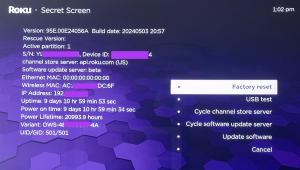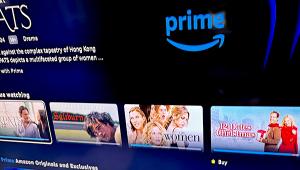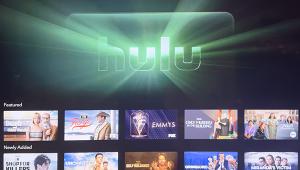Net neutrality is under threat once more. The new Chairman of the Federal Communications Commission (FCC) has proposed repealing the Title II Order, which empowers the FCC to regulate internet providers. Title II was established to protect the interests of all internet users and ensure that streaming services like Netflix have equal access to customers. Three years ago, public comments played a crucial role in shaping Title II, and now we need to voice our opinions again as the FCC seeks to dismantle this order. Sprunki Mods
What You Can Do to Save Net Neutrality (Again)

Earlier this month, John Oliver reported about Net Neutrality on HBO’s Last Week with John Oliver with a call to arms asking people to comment in support of net neutrality. To make it easier to find the comment page, he created a link gofccyourself.com that takes you directly to the FCC comment page. So far almost 3 million people have commented to save Net Neutrality on WC Docket No. 17-108, the proposal to roll back the Title II Order.
It’s been three years since the FCC voted in favor of net neutrality by establishing the Title II Order. As a reminder, net neutrality is the idea that the Internet should not be in any way hindered or monitored by internet providers who bring the World Wide Web into our homes. Net neutrality rules state that Internet providers (ISPs) cannot slow down (throttle) streaming from a particular service or website and that consumers have the right to receive everything from the internet without blocking or extra charges.
An example of throttling internet speeds occurred when Verizon wanted to charge Netflix a premium to stream to their customers. As I described in a blog I wrote in January 2014 Verizon’s own Redbox streaming service would have no restrictions and might achieve a market advantage from free streaming with no buffering. Netflix had already experienced the slowing as Verizon tried to get more money from the streaming service. This set into motion the FCC’s decision to reclassify internet providers as Title II. The new classification meant that the FCC could regulate and oversee internet providers—broadband cable companies and the like—to be sure that content providers had free and fair access to all internet users.
Along with free access, the Title II Order ensured transparency in charges by Internet Service Providers (ISPs). According to an article on TechCrunch, “Internet providers have attempted to throttle traffic by type (streaming vs. email) or by user (Netflix vs. Redbox) (Comcast in 2007), have imposed arbitrary and secret caps on data (AT&T 2011-2014), hidden fees that had no justification or documentation (Comcast in 2016), and tried to give technical advantages to their own services over those of competitors (AT&T in 2016). These attempts were only revealed in retrospect once they were discovered and lawsuits filed. If the deterrents those lawsuits provided eventually had been part of preemptive rulemaking then these practices would never have been attempted at all.”
Despite this history, Ajit Pai, the newly appointed Chairman of the United States FCC who previously worked as a lawyer for Verizon, claimed that Title II should never have been created as a fix because “nothing was broken.” Chairman Pai has just submitted a Notice of Proposed Rulemaking (NRPM) that will repeal the Title II Order. If the new proposal is adopted, this will remove any regulations on internet providers. Without regulations, providers can revert to blocking, throttling, and charging a premium to content companies like Netflix, Hulu, Amazon, (as well as small streaming companies like Tribeca Shortlist and others) for access to the pipeline to their customers. It's odd that an ex-Verizon lawyer would state that nothing was broken when before 2014, Netflix had already experienced a slowdown of its services where Verizon’s own RedBox was allowed faster speeds. It was broken at the time and was showing signs of worse problems as cited above.
Chairman Pai, and his supporters claim that we should go back to the way it was in the Clinton administration. Clearly a ploy to make it look like this is a bipartisan issue, we cannot go back to the “good old days” because the internet today is not the internet of the Clinton years that ended in 2001. The addition of video streaming didn’t begin until 2005 (YouTube) with Netflix streaming beginning just 10 years ago in 2007 so any agreement of internet regulations in the late 1990s didn't include a good portion of what the internet is today.
The argument is convoluted legalese to try to convince courts that the Internet is predominantly informational and should therefore not be under the FCC’s jurisdiction. This ignores the fact that Netflix alone makes up more than 35 percent of primetime traffic.
The Proposal’s name “restoring internet freedom,” is misleading as it is not the freedom of the public or the content providers that is being protected, it is solely that of the cable companies and other internet providers. According to FreePress.net , the nonprofit organization Open Secrets reports that telecommunications companies have spent more than $20 million lobbying for the repeal of the Title II Order, with Comcast alone investing $3.72 million since the start of 2017.
These companies are clearly not in the poorhouse. One argument Chairman Pai has presented in the 75 page proposal (yes, I read it), claims that internet providers have slowed innovation and infrastructure because investors have been dissuaded by Title II. There is evidence to refute Chairman Pai’s claim. FreePress has access to a study that shows “the aggregate capital investments at publicly traded ISPs was 5 percent higher after Title II than the two years preceding the vote.” There is also evidence that some internet providers have been giving dividends to stockholders putting themselves in the position to say they need a rollback on the Title II Order.
In a press release from Senator Ron Wyden (D-Ore.) earlier this year, he quotes Senator Richard Blumenthal (D-Conn), “We’re in for a fight and there is much at stake. Allowing a broadband provider to block or discriminate against certain content providers is not only a threat to the continued success of America’s innovators and job-creators, it is also a danger to free speech—one of the core principles of our democracy—at a time when so many of our First Amendment rights are threatened.”
If you want more information, I encourage you to visit the FCC website and read the statements for and against the proposal. Commissioner Mignon Clyburn’s statement is particularly poignant as she takes on Pai’s claims. She states that the proposal “contains ideological interpretive whiplash, boldly proposing to gut the very same consumer and competition protections that have been twice-upheld by the courts. And it contains an approach to broadband that will throw universal service money to broaden its reach, but abandon users, when something goes wrong, particularly if they are faced with anti-competitive or anti-consumer practices. It jeopardizes the ability of the open internet to function tomorrow as it does today. But if you unequivocally trust that your broadband provider will always put the public interest over their self-interest or the interest of their stockholders, then the Destroying Internet Freedom NPRM is for you.”
For more on Net Neutrality, check out the John Oliver clip on YouTube.
It goes back to a quote that I included in my post 3 years ago from then FCC Chairman Tom Wheeler. “…the FCC also is not going to abandon its responsibility to oversee that broadband networks operate in the public interest. It is not going to ignore the historic reality that when a new network transitions to become an economic force that economic incentives begin to affect the public interest. This means that we will not disregard the possibility that exercises of economic power or of ideological preference by dominant network firms will diminish the value of the Internet to some or all segments of our society.”
Comments are being accepted until July 17, 2017. Go to the FCC Comments page and click on “+Express” at the bottom of the box in the top left corner of the page and add your comments. If possible, add comments with specific opinions or facts.
- Log in or register to post comments

Attar - Discover a luxurious range of attar perfumes at QudratUllah. Our collection offers a variety of exquisite scents, crafted to elevate your fragrance experience. Perfect for those who appreciate the art of fine perfumery.

Looking for endless fun? Try Block Breaker, the ultimate free online arcade game! Challenge yourself with exciting levels and no downloads required. Play now at Block Breaker and enjoy hours of action-packed entertainment!

Sprunki Incredibox
Create catchy music by mixing sounds and animations.

Doodle Empires
Sketch and manage your own creative empires.

Personal Color Analysis
Find your ideal colors for fashion and style.

Among Us 3D
Experience the classic game in a 3D format.






























































